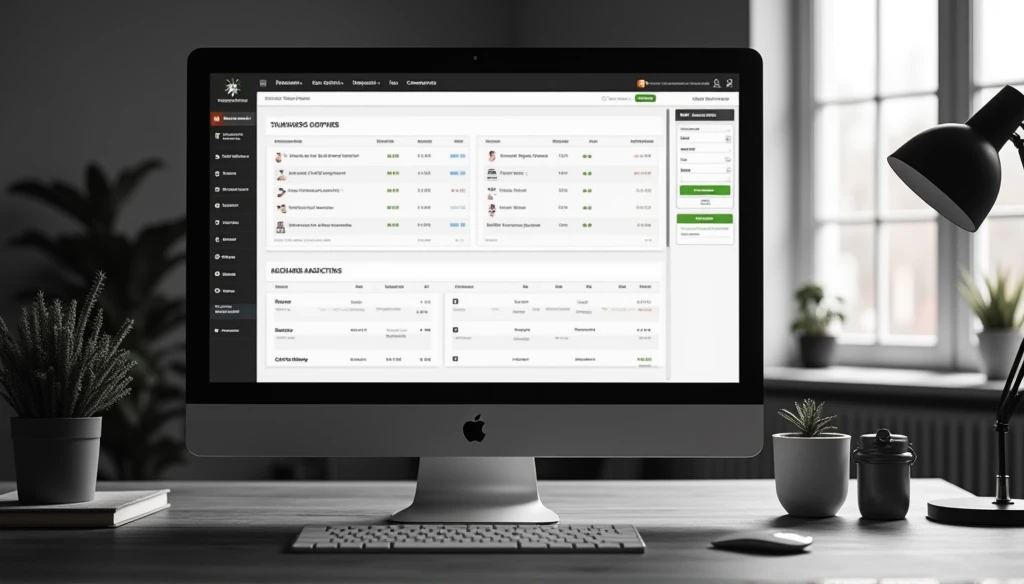Imagine owning a digital asset that grows in value while you sleep. Buy and Sell Websites for Profit isn’t just a side hustle anymore—it’s a full-fledged investment strategy that can generate serious profits. And unlike traditional businesses, website flipping doesn’t require huge capital or years of experience. You just need the right approach, patience, and most importantly, the best places to buy and sell.
Most people talk about Flippa and Empire Flippers, but let’s be real—those aren’t your only options. There are lesser-known marketplaces and strategies that can maximize your profit while avoiding the stiff competition on mainstream platforms. Let’s break down where to find, buy, and sell profitable websites while exploring some hidden gem platforms most people ignore.
Table of Contents
- Understanding the Website Flipping Business
- Best Marketplaces to Buy & Sell Websites
- Maximizing Profits When Selling a Website
- Conclusion & Action Plan
Understanding the Website Flipping Business
1. What Makes a Website Profitable for Resale?
Not every website is worth flipping. You need to evaluate key factors:
- Revenue Streams: Websites with consistent income (ads, affiliate marketing, memberships) are more attractive.
- Traffic Quality: Not just volume—buyers want targeted, organic traffic. Google SEO > Social media traffic.
- Niche Strength: Evergreen industries like finance, health, and SaaS tend to be goldmines for flipping.
- Growth Potential: A website with room to grow is worth more than a stagnant one. Look for weak monetization strategies that you can improve.
2. Hidden Opportunities: Where to Find Undervalued Websites
Instead of competing with thousands of buyers on Flippa, try these under-the-radar sources:
- Expired Domains: Many profitable sites get abandoned. Use SpamZilla or GoDaddy Auctions to find high-value expired domains.
- Distressed Websites: Struggling blogs, niche sites, and forums often sell cheap—browse Reddit’s r/JustStart and online business communities.
- Direct Outreach: Email site owners in your niche. Many would rather sell than shut down—giving you a direct deal without competition.
3. Tools to Evaluate Website Value Before Buying or Selling
Not all websites listed for sale are worth the price. Here’s how to analyze them:
- Empire Flippers Valuation Tool – Gives a baseline price estimation based on earnings.
- Worth of Web & SitePrice – Predicts future value based on current traffic.
- SimilarWeb & SEMrush – Helps track real traffic sources (beware of fake traffic sites!).
Best Marketplaces to Buy & Sell Websites
1. Hidden Gem Marketplaces for High-Value Sales
If Flippa feels crowded, try these instead:
- Motion Invest: Ideal for selling smaller content-based websites ($5K–$50K range).
- Investors Club: Invite-only, but great for getting serious buyers for premium sites.
- FE International: Handles six-figure sales for established businesses. If your site earns $5K+ monthly, this is your best bet.
2. Niche-Specific Marketplaces (Higher Selling Price!)
Instead of listing your website everywhere, target marketplaces specific to your niche:
- MicroAcquire – Best for SaaS and startup businesses.
- Exchange Marketplace – Specifically for Shopify-based businesses.
- SideProjectors – Great for side projects and apps looking for a buyer.
3. Selling Without a Marketplace (For Bigger Profits)
Marketplaces take a cut—avoid fees by selling directly:
- LinkedIn Networking: Find investors & business owners who’d buy a profitable site in your niche.
- Cold Outreach: Use tools like Hunter.io to find potential buyers & send direct pitches.
- Website Brokers: If your site is worth $100K+, consider professional brokers to negotiate a better deal.

Maximizing Profits When Selling a Website
1. Pre-Sale Optimization: Boosting Website Value Before Listing
Small changes can increase your selling price by thousands:
- SEO Fixes: Improve keyword rankings with tools like Surfer SEO before listing.
- Monetization Tweaks: Add affiliate links, display ads, or digital products to boost revenue.
- Reduce Expenses: Cut unnecessary tools or subscriptions—lower costs = higher profit margins.
2. Negotiation Tactics for Getting the Best Offer
The asking price isn’t final—negotiate wisely:
- Attract Multiple Buyers: More bidders = higher price. List on multiple platforms (or tease an auction).
- Sell a Vision: Buyers want future potential, not just past performance—highlight growth strategies.
- Consider Seller Financing: Allow partial payments over time to attract premium buyers (and make more in the long run!).
3. Post-Sale Transition & Avoiding Pitfalls
You’re not done after the sale! Secure the handover process to avoid headaches:
- Use Escrow Services: Protects both buyer and seller—never accept direct PayPal/Wire Transfers.
- Provide Smooth Migration: Help transfer domain, hosting, and accounts for a stress-free transition.
- Avoid Non-Compete Clauses: Some contracts prevent you from starting a similar website—read terms carefully.
Conclusion & Action Plan
Website flipping isn’t just for tech wizards—it’s a scalable, profitable way to build wealth. Whether you’re buying undervalued sites, optimizing them, or flipping for a quick profit, the key is choosing the right marketplace and strategy.
Instead of fighting for scraps on Flippa, explore exclusive, high-value platforms or sell directly to serious buyers. Invest in SEO, clean up expenses, and position your site as an irresistible asset to buyers.
Got a website you’re thinking of selling? Start optimizing now—you might be sitting on a digital goldmine.











Leave a Reply